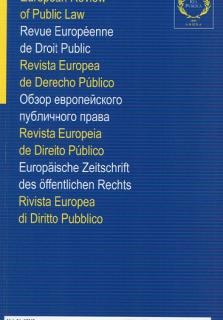
Constitutional Law / Droit constitutionnel
2011
REPUBLIC OF LATVIA / REPUBLIQUE DE LETTONIE
ANITA RODIŅA
Dr.iur, Assistant Professor of Constitutional Law at the University of Latvia
The chronicle analyses two relevant constitutional law issues of 2011. The right to legal initiative granted to the people of Latvia is one of the instruments of direct democracy, which in 2011 was exercised twice. The exercise of the legal initiative by the people triggered significant discussion on the so-called core of the Satversme (the Constitution) and the rights of the Central Election Commission and the President of the State in exercising this right. The decision of the Constitu¬tional Court on interim measures was equally significant, as the Constitutional Court had to answer the question of whether it had the right to stop a national referendum. The second issue analysed in this chronicle is linked with the issues of the legal status of a Constitutional Court Justice. When criminal proceedings were initiated against a Justice of the Constitutional Court, the Constitutional Court had to strike a balance between the individual rights of the Justice and the guarantees of the independence of judicial institutions, deciding upon suspending a judge's mandate. The chronicle also provides an answer to the question of why the Constitutional Court itself and not the Saeima (the Parliament) has to take a decision on criminally prosecuting a justice of the Constitutional Court.
La chronique analyse deux problèmes pertinents de droit constitutionnel qui se sont posés en 2011. Le droit d'initiative juridique garanti au peuple letton est un instrument de démocratie directe, qui a été exercé deux fois en 2011. L'exercice de l'initiative juridique par le peuple a déclenché un débat nourri sur ledit noyau de la Satversme (Constitution) ainsi que sur les droits de la Commission électorale centrale et du président de l'Etat d'exercer ce droit. L'arrêt de la Cour constitutionnelle sur les mesures provisoires a été tout aussi important, dans la mesure où la Cour devait répondre à la question de savoir si elle avait le droit d'empêcher un référendum national. Le second problème analysé dans cette chronique est lié aux questions du statut juridique d'un juge de la Cour constitutionnelle. Quand des procédures pénales ont été engagées contre un juge de la Cour constitutionnelle, cette dernière a dû trouver un équilibre entre les droits individuels du juge et les garanties d'indépendance des institutions judiciaires, quand elle a décidé de suspendre le mandat du juge. La chronique apporte aussi une réponse à la question de savoir pourquoi la Cour constitutionnelle elle-même, et non la Saeima (le Parlement), doit prendre une décision de poursuivre pénalement un juge de la Cour constitutionnelle.





















